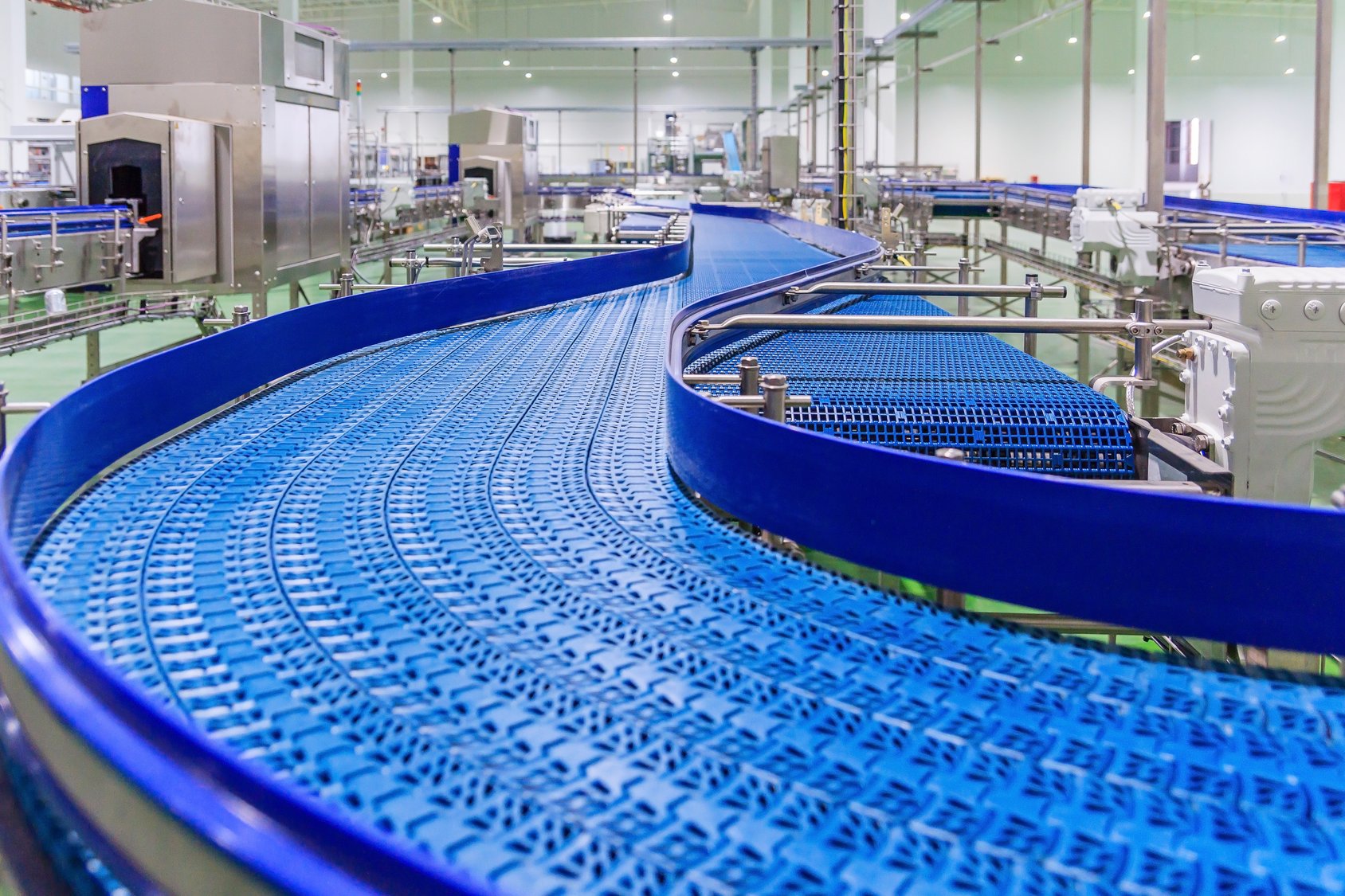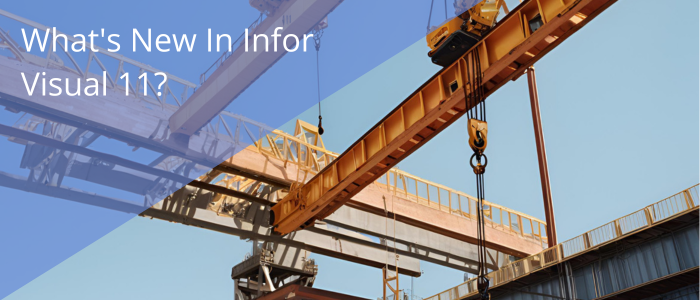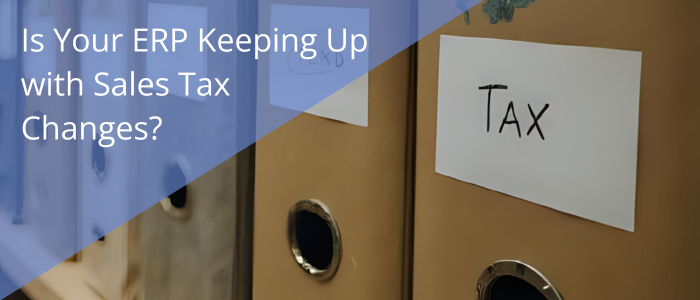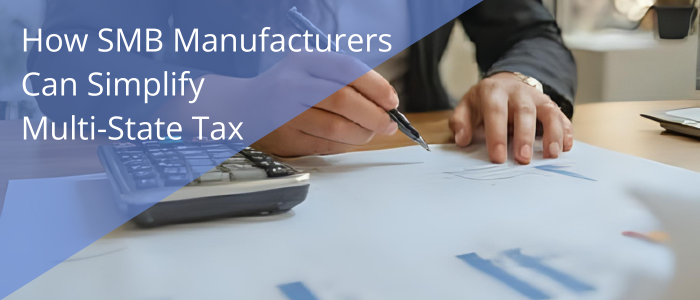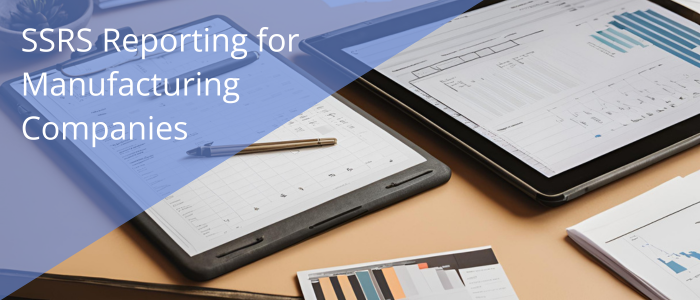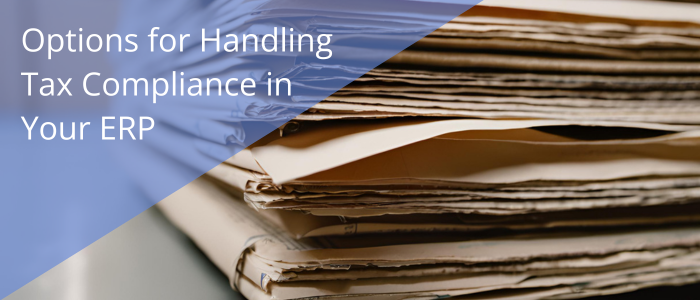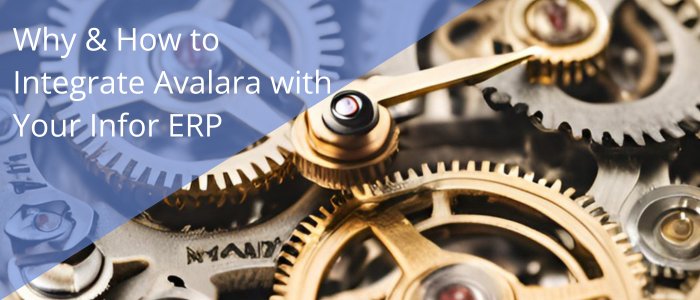Infor’s VISUAL 11 ERP introduces a range of new features and enhancements designed to streamline operations, improve user experience, and enhance overall system performance. Let’s dive into the highlights of this release and see how these updates can benefit your business.
Exploring the New Features in VISUAL 11 ERP
By Jason Brown on 8/12/25 8:45 AM
Is Your ERP Keeping Up with Sales Tax Changes?
By Bryan Foshee on 6/17/25 9:01 AM
Manufacturing companies implement ERP systems to centralize operations, streamline processes, and reduce reliance on spreadsheets. These systems do a great job managing core functions like production, inventory, and financials. But as you go further away from the actual production of the product, the story is different. Sales tax is a good example.
How SMB Manufacturers Can Simplify Multi-State Tax
By Bryan Foshee on 6/16/25 1:38 PM
For small- and medium-sized manufacturers, growth brings complexity. A common and often overlooked example is sales tax. The moment a business starts selling into other states, it opens the door to a patchwork of tax rules, filing requirements, and exemption management challenges. Sales tax compliance doesn’t seem strategic until something goes wrong. Then it becomes a distraction for the team, pulling attention away from more valuable work.
How Manufacturers Can Improve Their On-Time Delivery
By Bryan Foshee on 3/28/25 1:13 PM
This is part two of our series on on-time delivery. Here is part one on how to measure the on-time delivery KPI.
How To Measure The On-Time Delivery KPI
By Bryan Foshee on 3/27/25 6:15 AM
Measure what you want to improve
There are many opinions as to what key performance indicators (KPIs) should be monitored at a small to medium-sized manufacturing company, but the on-time delivery (OTD) KPI is on everyone’s list. It doesn’t matter if the company is build-to-stock, a job shop, or something in-between; there are many steps in coordinating the production of a product and OTD is a nice summation of manufacturing performance.
Why SSRS Reporting Is Ideal for Manufacturing Companies
By Jason Brown on 1/29/25 10:00 AM
In manufacturing, access to timely, precise, and well-formatted data is essential for operational efficiency and informed decision-making. SQL Server Reporting Services (SSRS) is a powerful tool that helps all types of companies create and manage structured, detailed reports that have been tailored to their needs. Below, we’ll explore why SSRS is an excellent choice for manufacturers and how it can enhance your reporting capabilities.
Manufacturing Process Documentation Template
By Bryan Foshee on 1/16/25 7:30 AM
The case for having manufacturing documentation
At Visual South, we always recommend that our customers have solid business, or application, process documentation templates. Companies often have written procedures for quality control, human resources, safety, and the like, but not always for enterprise resource planning. Not having processes documented for your ERP software creates risk that can have disruptive effects and negatively impact the bottom line.
ERP & CMMC Compliance: How Infor ERP Helps Manufacturers
By Tim O'Brien on 11/15/24 12:00 AM
CMMC compliance for DoD manufacturers
The Cybersecurity Maturity Model Certification (CMMC) is a Department of Defense (DoD) program that outlines the cybersecurity standards and best practices required for government contractors. CMMC compliance for manufacturers in the DoD supply chain involves meeting specific cybersecurity standards and best practices.
4 Options for Handling Tax Compliance in Your ERP
By Bryan Foshee on 11/12/24 10:00 AM
Tax compliance can be a tricky and time-consuming task, especially for manufacturing businesses operating across multiple jurisdictions. Most companies in the industry have an ERP system in place that helps streamline operations and internal processes, but these solutions don't always come with robust tax compliance features. To keep your business growing and avoid common tax pitfalls, here are a few options for handling tax compliance within your ERP system:
Why & How to Integrate Avalara with Your Infor ERP
By Bryan Foshee on 10/30/24 10:00 AM
Every manufacturer knows that managing tax compliance can be a headache—especially when you’re dealing with multiple states, countries, and ever-changing regulations. Add in managing exemption certificates, and it’s enough to slow down your business.


